Meet golf-mad billionaire Tadashi Yanai, Uniqlo founder and Japan’s richest person
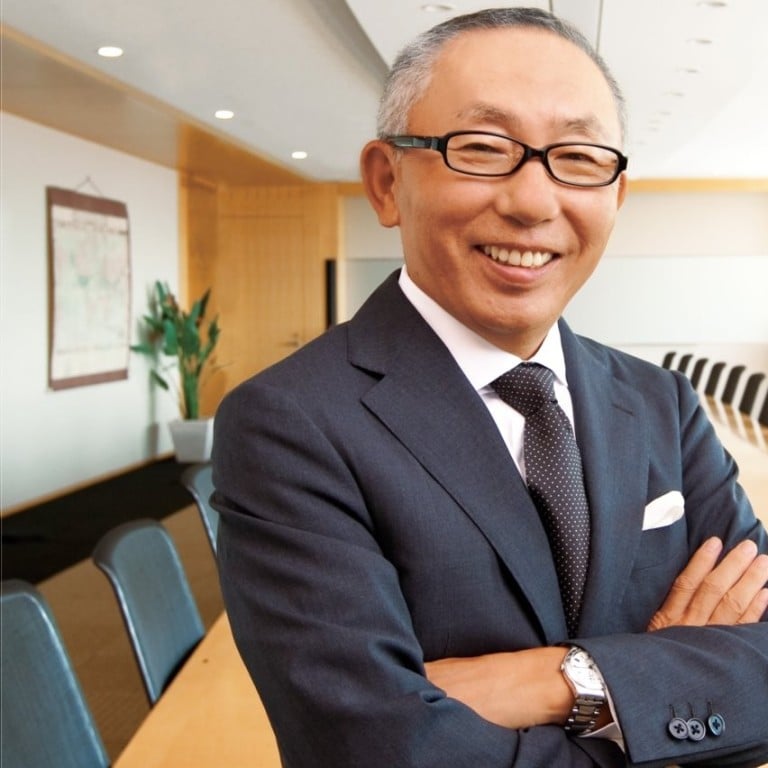
Businessman Tadashi Yanai – best known around the world for his Uniqlo clothing retail company – is the richest person in Japan.
The 70-year-old, who likes to start work at 7am and be home by 4pm, is worth an estimated US$24.8 billion, Bloomberg reported.
His fortune is derived from his position as chairman, president and biggest shareholder of Fast Retailing, Asia’s largest clothing retailer, which is the parent company of Uniqlo.
Yanai, the son of a tailor, opened the first Uniqlo store in 1984 and has expanded the brand to more than 2,000 stores in at least 20 countries.
Uniqlo’s clothing is “geared to all types of people: whether they are billionaires, the middle class, the lower end,” Yanai has said.
“We need to cater to all, just like [Britain’s] Marks & Spencer or Gap or H&M and Zara. Unless we cater to all segments of life and segments of people, we cannot be successful.”
He lives in a US$50 million house in the woods outside Tokyo and owns another home in an exclusive neighbourhood in the Japanese capital.
The passionate golfer owns two golf courses in Hawaii, where he reportedly spends a few weeks playing each summer.
Check out the life of Japan's richest person.
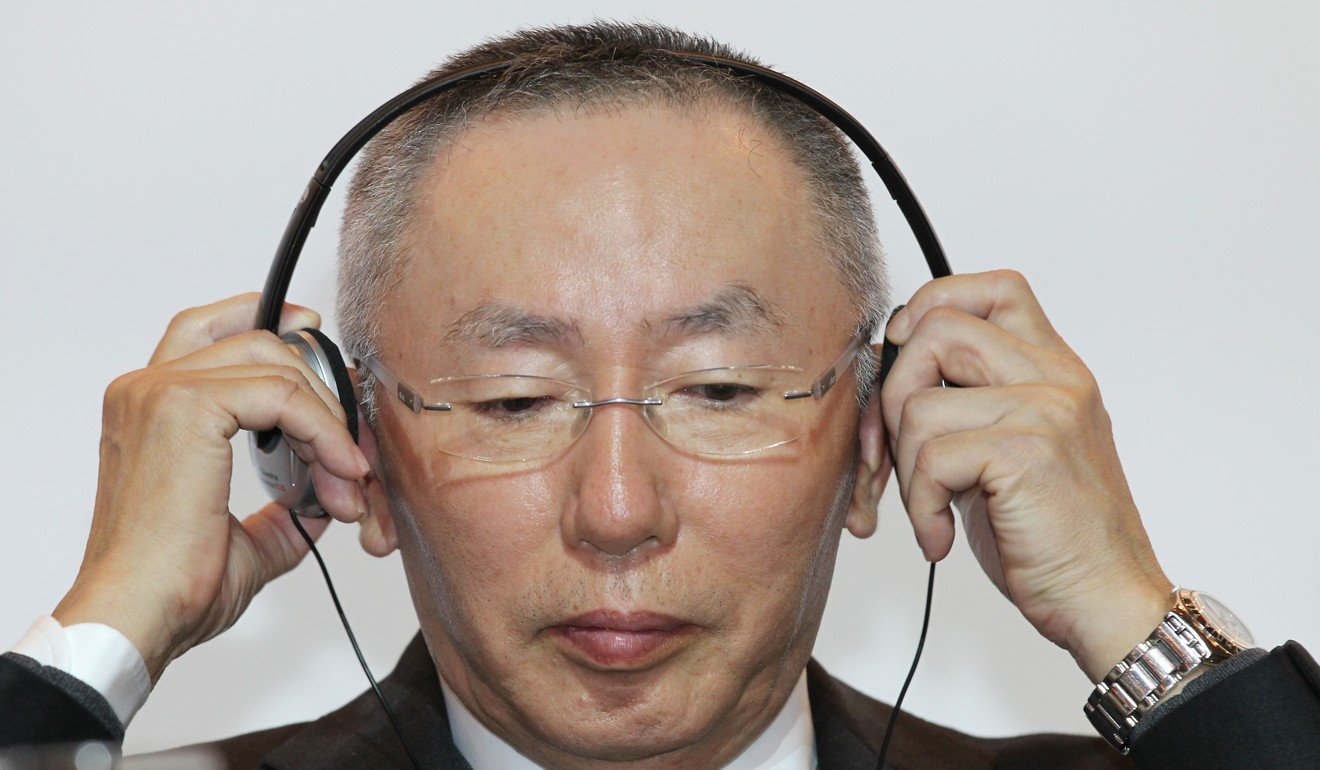
The Japanese businessman is more than US$6 billion richer than the second-richest person in Japan, Takemitsu Takizaki, Bloomberg reported.
Takizaki, 73, is the founder of Keyence, a Japanese electronic sensor maker in Osaka, which produces devices used on assembly lines by customers such as Toyota and Toshiba.
Yanai holds a 46 per cent stake in Fast Retailing, which is the parent company not only of Uniqlo, but also other clothing lines including the New York based clothing retailer Theory, French fashion brand Comptoir des Cotonniers and the US clothing brand, J Brand
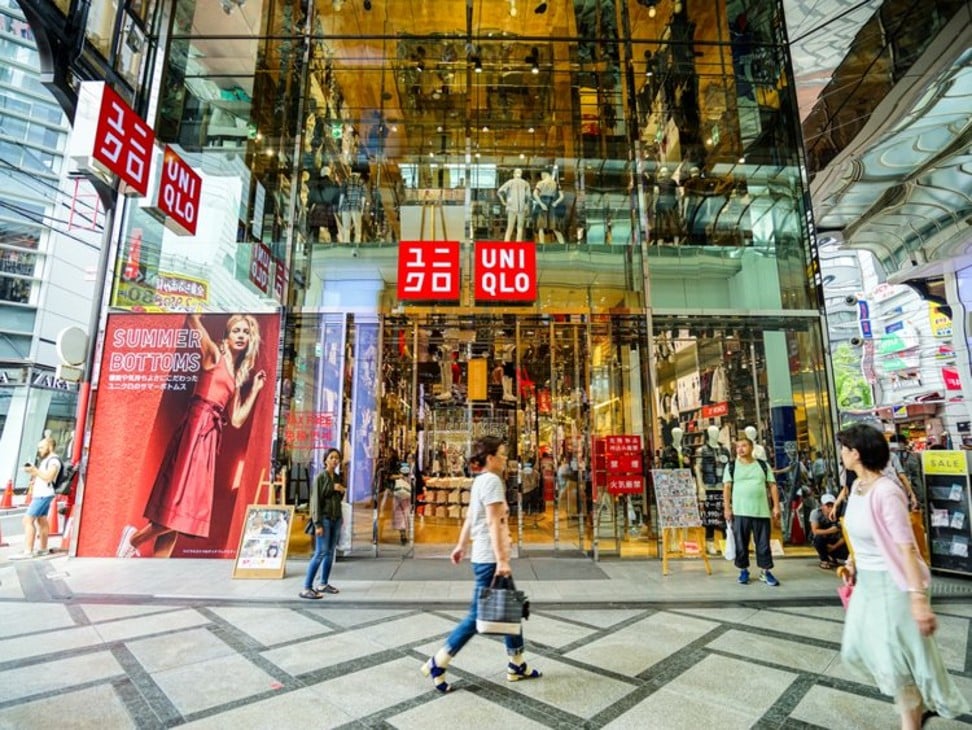
Fast Retailing reported a yearly revenue of US$16.9 billion in August 2017, Bloomberg reported.
Yanai, who is a father of two, was born in southern Japan in 1949. His father owned a men's clothing shop called Men's Shop Ogori Shoji.
The store was on the first floor and the family lived above it. By the 1970s, the business had opened stores in several locations.
After graduating with a degree in economics and political science from Wasada University in 1971, Yanai started selling men’s clothing and kitchenware at a Jusco supermarket, but he quit after one year and began working for his father.
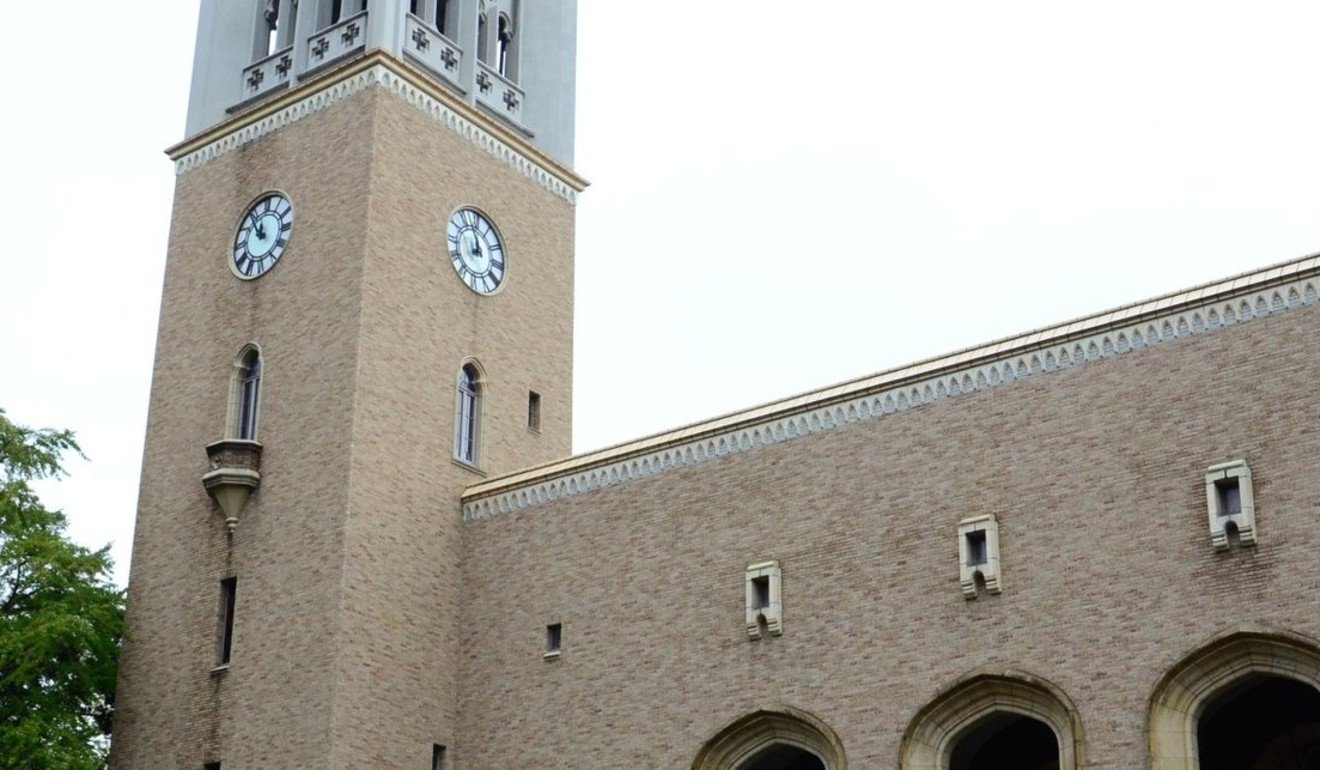
Yanai said he didn’t start out being very motivated to work.
“My preference was not to work my entire life, that's how I was,” he said. “My father demanded that I need to find work at Jusco. So regretfully I got a job.”
He said he joined his father’s clothing business because he had nowhere else to go, but then ended up finding the work fun.
In 1984 in Hiroshima, Yanai founded Unique Clothing Warehouse, the name of which would later be shortened to Uniqlo.
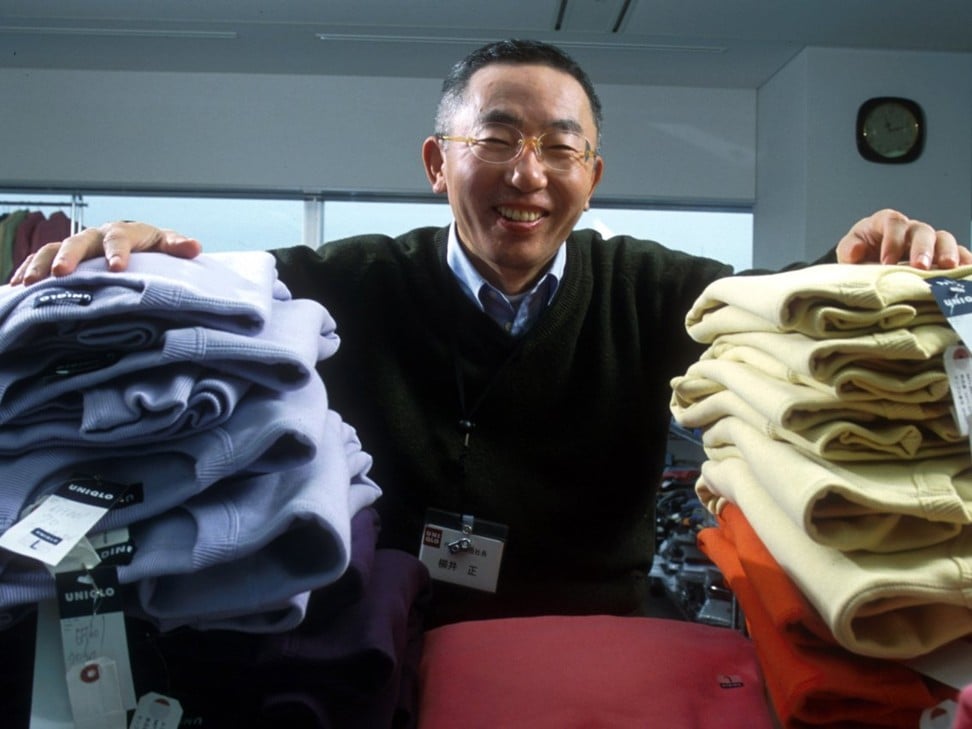
A few years later, he changed the name of his father's clothing company to Fast Retailing, to reflect the apparel chain's expansion strategy.
Uniqlo continued to grow quickly and by 1996 Yanai had opened more than 200 stores across Japan.
Its US$15 fleece jacket was the brand's most popular product, with an estimated one in four Japanese people having bought one by 1998.
The brand sold 26 million fleeces at its more than 400 stores in Japan in 2000.
Yanai then started opening Uniqlo stores abroad in 2001
Today he lives in a 16,586-square-foot (1,540 square-metre) house in the woodlands in the outskirts of Tokyo.
The property, which includes a guard house, a golf driving range and a separate thatched-roof teahouse, was estimated to be worth about US$50 million in 2017. Yanai bought the land at auction for US$78 million in 2001.
Yanai also has a residence worth an estimated US$74 million in Tokyo’s Shibuya, an exclusive area where many government officials and CEOs have a home.
The billionaire is said to be an avid golfer.
He spends up to three weeks every summer playing in Hawaii, where he owns two golf courses, which he bought for a combined US$74.1 million.
Yanai bought the Plantation Golf Course in Hawaii from Maui Land & Pineapple for US$50 million in 2009, Bloomberg said. In 2010, he bought another course, Kapalua Bay, for US$24.1 million.
Between 2013 and 2018, the expansion of Yanai’s company meant that his net worth grew from US$15.5 billion to US$24 billion.
Fast Retailing is now the third-largest global clothing retailer, after H&M and Inditex, the parent company of Zara, MoneyWeek has reported.
Today, Fast Retailing operates 825 Uniqlo stores in Japan with mre than 1,200 others located around the world.
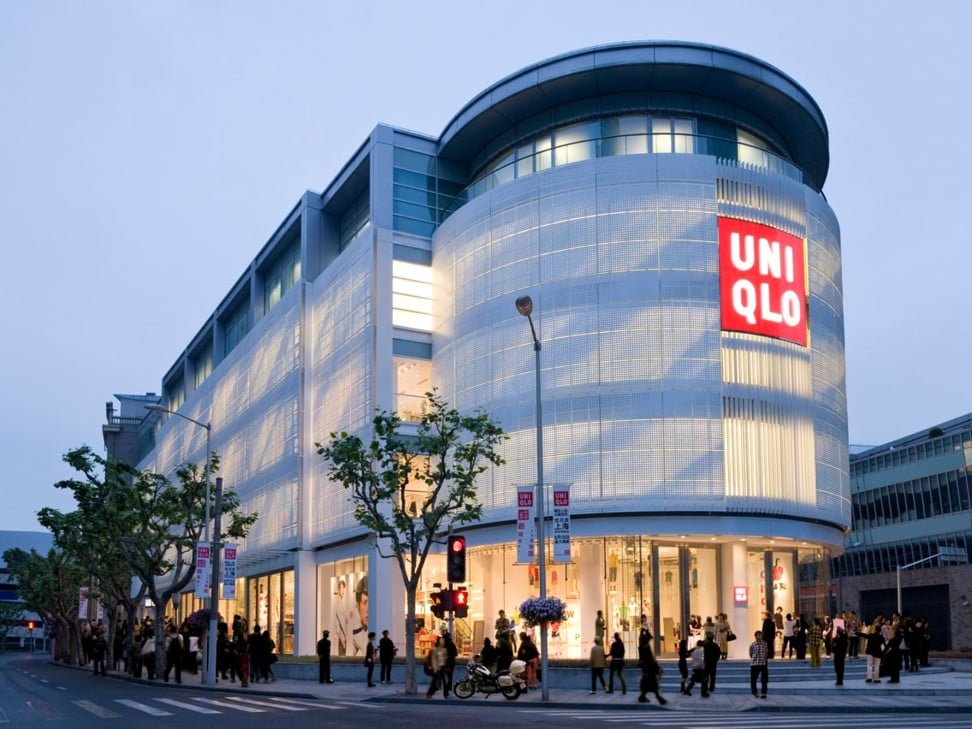
The US is home to 50 Uniqlo stores, with the remainder scattered mostly throughout Asian countries including Japan, mainland China, Hong Kong, Indonesia, South Korea, and the Philippines.
Uniqlo is known for its relatively affordable, timeless basic items of clothing.

Yanai has described Uniqlo’s clothes as “geared to all types of people”.
He has made it clear he aims to make Fast Retailing the world’s largest clothing retailer, and regards H&M and Zara as its biggest rivals.
He said in 2017 that his goal is to have the company’s revenue reach US$29 billion by 2020.
“Information and digital innovation will determine the winner,” Yanai said. “And that’s the area we are in.”
Uniqlo also has plans to open up its first stores in India, Vietnam, Denmark, and Italy later this year.
It has pioneered the use of artificial intelligence in its stores to improve customers’ shopping experience.

Certain Uniqlo stores have AI-powered UMood kiosks, which show customers a variety of products and measures their reaction to the colour and style through neurotransmitters.
Based on each person’s reactions, the kiosk then recommends products.
Customers do not even have to push a button; their brain signals are reportedly enough for the system to know how they feel about each item.
Last year Uniqlo launched GU Style Studio stores – fitting-only stores – where customers can try on clothing, view their avatars dressed in different outfits and place orders online for later delivery.
Yanai's two sons, Kazumi and Koji, are both on Fast Retailing's board of directors.
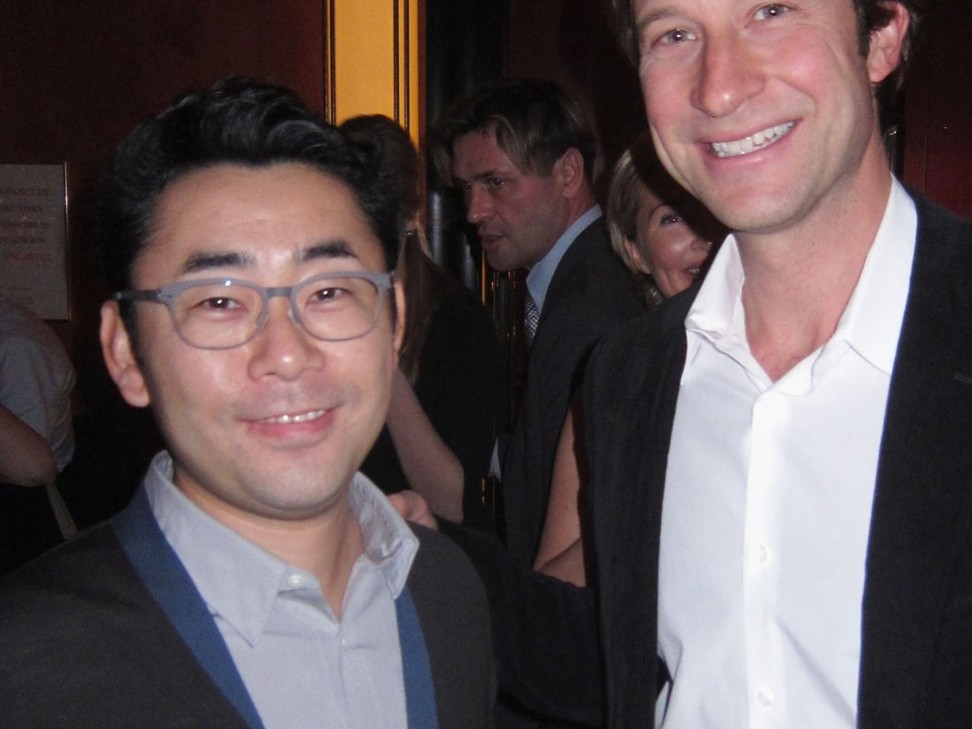
“This means that corporate governance will function even when I’m absent,” Yanai said when he announced their promotions last October.
“It does not mean that they will take charge of the company.”
Kazumi and Koji were both senior vice-presidents at Fast Retailing before being promoted to the board.
In 2017, Yanai said that he would step down as president of Fast Retailing when he turned 70, but stay on as chairman.
Yanai, who celebrated his 70th birthday in February, has so far made no official announcement about leaving his role as president or about who will take his place.
Want more stories like this? Sign up here. Follow STYLE on Facebook, Instagram and Twitter

- The 70-year-old son of a tailor, who owns two golf courses and launched his clothing brand in 1984, is worth US$24.8 billion